gesis report 11/23
Liebe Leser*innen, wir laden Doktorand*innen und Postdocs am Anfang ihrer Karriere ein, zu GESIS zu kommen. Gastforschende des Nachwuchsforschungsprogramms werden in unsere Forschung eingebunden, um gemeinsam mit GESIS-Mitarbeitenden zu publizieren und um Forschungsideen und gemeinsame Projekte zu entwickeln. GESIS nimmt gerne Bewerbungen für Forschungsaufenthalte an den beiden Standorten Mannheim und Köln entgegen. Interessiert? Für weitere Informationen besuchen Sie bitte unsere Homepage Ihre Redaktion | Dear readers, we invite Ph.D. students and early career postdocs to come to GESIS. Visiting researchers of the Junior Research Program are involved in our research to publish with GESIS staff, and to develop research ideas and joint projects. GESIS is pleased to receive applications for research visits at both of its locations, Mannheim and Cologne. Interested? Please check out our homepage. Your editorial team |
GESIS Spring Seminar 2024 – Registration is Open!The Spring Seminar offers high-quality training in state-of-the-art techniques in quantitative data analysis taught by leading experts in the field. It is designed for advanced graduate or PhD students, post-docs, as well as junior and senior researchers. In 2024, all courses will deal with "Recent Developments in Longitudinal Data Analysis" in the social sciences and beyond. Extensive hands-on exercises and tutorials complement lectures in each course. The Spring Seminar will take place onsite at GESIS Cologne, Germany, from 26 February to 15 March 2024. GESIS Spring Seminar 2024 Program: Week 1 (26 Feb - 01 Mar) Week 2 (04 - 08 Mar) Week 3 (11 - 15 Mar) Courses must be booked separately – whether you wish to attend one, two, or all three. There is no registration deadline, but places are limited and allocated on a first-come, first-served basis. Thanks to our cooperation with the Cologne Graduate School in Management, Economics, and Social Sciences at the University of Cologne, enrolled doctoral students can obtain three ECTS credit points per one-week course. For detailed information on the Spring Seminar 2024, please visit www.gesis.org/springseminar.
Call for data papers on lonelinessThe Journal of Open Psychology Data is inviting contributions to a Special Collection of data papers describing datasets from psychological research on loneliness. The data papers may be broad in scope, as long as they describe psychology datasets on loneliness and outline the reuse potential of these datasets for the scientific community—be it for secondary analysis, theory building, teaching, etc. The Special Collection aims to cover data from a broad range of studies, designs, and population groups—from large, representative survey programs to small studies using student samples. In the context of existing research on loneliness—a phenomenon that negatively impacts individuals and societies worldwide—and with the aim of encouraging further research on this pressing topic, we invite the scientific community to submit contributions to the Special Collection from now on (until November 2024). Read the full call for papers for more information. | GESIS Training Workshops in February 202414/02-15/02 20/02-21/02 20/02-23/02 21/02-23/02 26/02-27/02
Check out our other workshops! |
 | Neuer Beitrag im GESIS-Blog: Dr. Charmaine Voigt schreibt über das Forschungsprojekt Wi4impact, in dem Wissenschaftsblogs und -podcasts beleuchtet werdenDiese vierteilige Blogreihe gibt einen schrittweisen Einblick in das Forschungsprojekt Wi4impact, in dem die Wissenstransferleistung von Wissenschaftsblogs und -podcasts deutscher Hochschulen und Forschungseinrichtungen untersucht wird. Der erste Beitrag liefert eine kurze theoretische Einführung zum Untersuchungsgegenstand. DOI: 10.34879/gesisblog.2023.72 New blog post: Dr. Charmaine Voigt writes about the Wi4impact research project, which examines science blogs and podcastsThis blog series provides a step-by-step overview of the Wi4impact research project, which examines the knowledge transfer impact of science blogs and podcasts at German higher education and non-university research institutions. The first blog post presents a brief theoretical introduction to our research topic. |
 | Englische Version des ALLBUS 2021 erschienenErhalten Sie wertvolle Einblicke in die sich ständig verändernden Einstellungen der deutschen Bevölkerung zu den verschiedensten Themen. Erforschen Sie die umfangreichen Zeitreihendaten und entdecken Sie Trends, die die Gesellschaft prägen!
The English version of the 2021 German General Social Survey data is now liveDive into a treasure trove of insights on the ever-evolving attitudes of the German population across diverse topics. Explore the rich time series data and uncover trends shaping society!
|
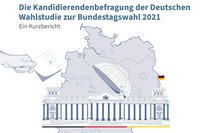 | Kurzbericht zur GLES Kandidierendenstudie 2021 erschienenNeben wahlberechtigten Bürger*innen befragt die German Longitudinal Election Study (GLES) auch Kandidierende der großen Parteien in Deutschland. Insgesamt 2.558 Kandidierende haben an der Befragung im Rahmen der Bundestagswahl 2021 teilgenommen. Einige Einblicke in Ergebnisse dieser Studie liefert der kürzlich erschienene Kurzbericht zur GLES Kandidierendenstudie 2021. www.gesis.org/gles/kurzbericht
Short report on the GLES Candidate Study 2021 out nowIn addition to eligible voters, the German Longitudinal Election Study (GLES) also surveys candidates of the major parties in Germany. A total of 2,558 candidates took part in the survey as part of the 2021 Bundestag elections. The recently published short report on the GLES Candidate Study 2021 provides some insights into the results of this study. www.gesis.org/gles/kurzbericht [Only in German]
|
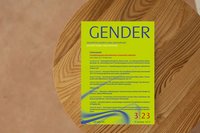 | Neu erschienen: Lena Weber: Caring Masculinities. Strukturübungen männlicher Fürsorglichkeit von Männern in PflegeberufenUnter dem Stichwort der Caring Masculinities werden unkonventionelle Männlichkeitsentwürfe und -biografien untersucht, durch die ggf. ein Transformationspotenzial für sich verändernde Geschlechterverhältnisse abzulesen ist. Darunter werden auch Praktiken männlicher Fürsorglichkeit beleuchtet, bislang vor allem in Bezug auf familiäre Nahbeziehungen. Im Kontrast dazu wird in dem Beitrag der Kontext von Pflegeberufen als Arena von Strukturübungen männlicher Fürsorglichkeit analysiert. Out now: Lena Weber: Caring Masculinities. Strukturübungen männlicher Fürsorglichkeit von Männern in PflegeberufenUnder the heading of “caring masculinities”, unconventional concepts of masculinity and biographies are examined, which may reveal a transformation potential for changing gender relations. It also examines practices of male caring, so far primarily in relation to close family relationships. In contrast, the article analyzes the context of care professions as an arena of structural exercises of male caring. Based on qualitative interviews with male subjectivized caregivers in nursing, geriatric care and curative education, it reconstructs how they link masculinity with caring. |
 | Bekanntheit des PID-Dienstes für Umfragevariablen wächstDer im Rahmen des NFDI-Konsortiums KonsortSWD entwickelte PID-Dienst für Umfragevariablen wurde allein in der zweiten Jahreshälfte 2023 bei fast 200 Personen aus Europa, den Vereinigten Staaten, Südamerika und Australien beworben, wobei im Laufe des Jahres bisher 342 Personen erreicht wurden. Popularity for PID service for survey variables is growingThe PID service for survey variables, developed in the context of the NFDI consortium KonsortSWD, has been advertised to almost 200 people from Europe, the United States, South America and Australia in the second half of 2023 alone, with 342 people being reached during the year so far.
|
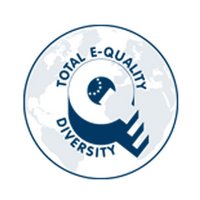 | Lena Weber, Teamleiterin des CEWS, ist Mitglied im neu gewählten Kuratorium bei TOTAL E-QUALITY Deutschland e.V.Mit dem TOTAL E-QUALITY-Prädikat werden Institutionen ausgezeichnet, die sich mit personal- und institutionspolitischen Maßnahmen um die Durchsetzung von Chancengleichheit in ihren Einrichtungen bemühen und dabei auch Erfolge erzielen. Lena Weber, Team Leader of the CEWS, is a member of the newly elected Board of Trustees of TOTAL E-QUALITY Deutschland e.V.The TOTAL E-QUALITY award is given to institutions that strive to implement equal opportunities in their institutions through personnel and institutional policy measures and achieve success in doing so. |
 | GESIS Paper erschienen: Das Codierschema des "wichtigsten politischen Problems in Deutschland" der German Longitudinal Election StudyWeiß, J., Marquardt, J., Meurer, J. E., & Eschenwecker, S. (2023). Das Codierschema des "wichtigsten politischen Problems in Deutschland" der German Longitudinal Election Study. (GESIS Papers, 2023/09). Köln: GESIS - Leibniz-Institut für Sozialwissenschaften. https://doi.org/10.21241/ssoar.89818 In Surveys werden Fragen häufig offen gestellt, um z.B. Trends zu erfassen. Gleichzeitig bringt die Verarbeitung der daraus resultierenden Daten viel Aufwand mit sich. Ein typisches Beispiel ist die Frage nach dem aktuell wichtigsten Problem, welche auch in der German Longitudinal Election Study regelmäßig gestellt wird. GESIS Paper out now: Das Codierschema des "wichtigsten politischen Problems in Deutschland" der German Longitudinal Election StudyWeiß, J., Marquardt, J., Meurer, J. E., & Eschenwecker, S. (2023). Das Codierschema des "wichtigsten politischen Problems in Deutschland" der German Longitudinal Election Study. (GESIS Papers, 2023/09). Köln: GESIS - Leibniz-Institut für Sozialwissenschaften. https://doi.org/10.21241/ssoar.89818 In surveys, questions are often asked openly, e.g. to record trends. At the same time, processing the resulting data involves a lot of effort. A typical example is the question about the currently most important problem, which is also regularly asked in the German Longitudinal Election Study. |
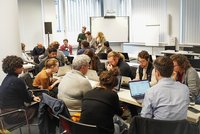 | Erfolgreiche Conference on Harmful Online Communication bei GESISMitte November kamen zahlreiche Expertinnen und Experten aus der Forschung zur computergestützten Erkennung und Analyse von Harmful Online Communication bei GESIS zusammen, um sich an zwei Tagen zu vernetzen und aktuelle Forschungsergebnisse zu diskutieren. Successful Conference on Harmful Online Communication at GESISIn mid-November, numerous experts from the field of computer-based detection and analysis of harmful online communication came together at GESIS to network over two days and discuss the latest research findings. |
 | HSR 48.4 mit Special Issue “Doing Global Sociology” erschienenDiese HSR-Sonderausgabe nimmt eine global vergleichende Perspektive auf Prozesse des biografischen Werdens ein, um Wege zu einer "globalen Soziologie" nach der postkolonialen Kritik aufzuzeigen. HSR 48.4 with Special Issue “Doing Global Sociology” out nowThis HSR Special Issue takes a globally comparative perspective on processes of biographical becoming in order to illustrate ways of doing “global sociology” after the postcolonial critique. |
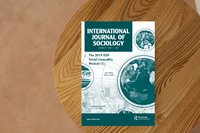 | Neue Publikation: Bechert & Osberg: A few people make all the difference – an international comparison of “fair” pay differentialsInsa Bechert & Lars Osberg (2023) A few people make all the difference – an international comparison of “fair” pay differentials, International Journal of Sociology, DOI: 10.1080/00207659.2023.2274713 Insa Bechert und Lars Osberg analysieren in ihrem Beitrag "A Few People Make All the Difference - an International Comparison of "Fair" Pay Differentials" alle fünf Wellen des ISSP-Moduls Soziale Ungleichheit (1987 bis 2019), um die Einstellungen zu "fairen" Lohnverhältnissen in sieben Ländern zu vergleichen, nämlich Deutschland, Italien, Ungarn, Norwegen, Großbritannien, den USA und Russland. New publication: Bechert & Osberg: A few people make all the difference – an international comparison of “fair” pay differentialsInsa Bechert & Lars Osberg (2023) A few people make all the difference – an international comparison of “fair” pay differentials, International Journal of Sociology, DOI: 10.1080/00207659.2023.2274713 Insa Bechert and Lars Osberg analyze in their paper “A Few People Make All the Difference – an International Comparison of “Fair” Pay Differentials” all five waves of the ISSP Social Inequality module (1987 to 2019) to compare attitudes toward “fair” pay ratios in seven countries, namely Germany, Italy, Hungary, Norway, Great Britain, the USA, and Russia. |
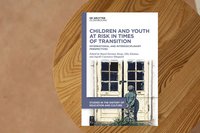 | Neu: Ødegaard et al. (Hg.): Children and Youth at Risk in Times of TransitionBorge, Baard Herman, Kleinau, Elke and Ødegaard, Ingvill Constanze. Children and Youth at Risk in Times of Transition: International and Interdisciplinary Perspectives, Berlin, Boston: De Gruyter Oldenbourg, 2024. https://doi.org/10.1515/9783111010649 Dieser Band befasst sich mit Risiken, denen Kinder und Jugendliche vor allem in Zeiten des Übergangs ausgesetzt sind. Im Mittelpunkt stehen verschiedene Gruppen von Kindern in den europäischen Kriegs- und Nachkriegsgesellschaften des Zweiten Weltkriegs, "Besatzungskinder" in Deutschland, jugendliche NS-Kollaborateure in Norwegen und neuere Fälle wie Kindersoldat*innen, Flüchtlingskinder und Kinder von europäischen "Islamischen Staat"-Kämpfer*innen. New: Ødegaard et al. (Hg.): Children and Youth at Risk in Times of TransitionBorge, Baard Herman, Kleinau, Elke and Ødegaard, Ingvill Constanze. Children and Youth at Risk in Times of Transition: International and Interdisciplinary Perspectives, Berlin, Boston: De Gruyter Oldenbourg, 2024. https://doi.org/10.1515/9783111010649 This volume addresses risks to which children and young people are exposed, especially in times of transition. The focus is on different groups of children in the European wartime and post-war societies of the Second World War, ‘occupation children’ in Germany, teenage National Socialist collaborators in Norway, and more recent cases such as child soldiers, refugee children, and children of European “Islamic State” fighters. |
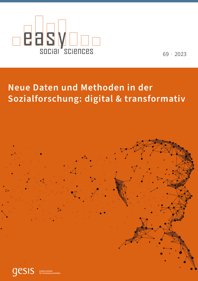 | Neue easy_social_sciences erschienen: Neue Daten und Methoden in der Sozialforschung: digital & transformativeasy_social_sciences (69), 2023 Die neue Ausgabe von easy_social_sciences möchte einen Einblick in die vielfältigen disziplinären, methodischen und inhaltlichen Ansätze zur Forschung mit und über digitale Daten geben, um einen Eindruck zu vermitteln, wie sie genutzt werden können, um neue Forschungspotenziale zu erschließen. New easy_social_sciences out now: Neue Daten und Methoden in der Sozialforschung: digital & transformativeasy_social_sciences (69), 2023 This issue of easy_social_sciences provides an overview of the diverse disciplinary, methodological, and substantuve approaches to research with and about digital data. The articles aim to underline how these kinds of data can be used to exploit new research opportunities. |
 | E-Mail wird nicht richtig dargestellt? Jetzt im Browser anschauen! Eine Abbestellung des Newsletters "gesis report" ist jederzeit über diesen Link möglich: https://lists.gesis.org/mailman/listinfo/gesis-newsletter Sie können uns auch gerne eine E-Mail senden: gesisreport@gesis.orgDie Datenschutzhinweise von GESIS können Sie über folgenden Link einsehen: https://www.gesis.org/institut/datenschutz/ Display problems? No images? Open the newsletter in your browser! You can unsubscribe from the newsletter "gesis report" at any time via this link: https://lists.gesis.org/mailman/listinfo/gesis-newsletter You can also send us an e-mail: gesisreport@gesis.org The GESIS data protection information can be viewed via the following link: https://www.gesis.org/institut/datenschutz/ |

